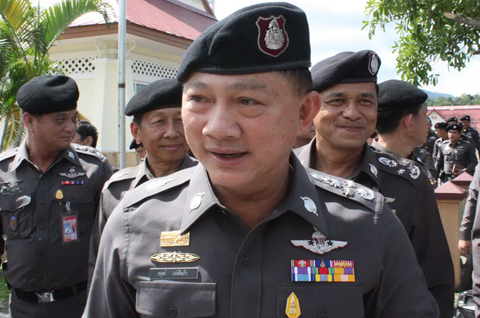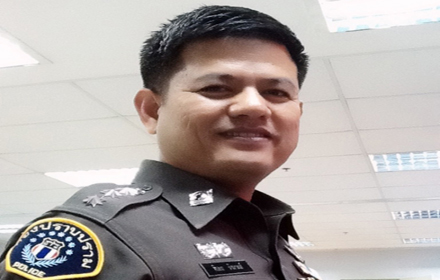New police approaches in the far South
With newcomers in command at the National Police Office, several new constructive approaches are to be applied in the restive deep South in a bid to win public confidence and trust of the police among the ethnic Malay Muslims there.

The new national police chief, Pol Gen Adul Saengsingkaew, told Isra news agency in a recent interview that he had placed special emphasis on the concept of "putting the right man on the right job" for police officers assigned to the three southernmost provinces.
He said that the officers’ performances would be assessed every 3 or 6 months on the following aspects: their abilities to maintain the situation: their abilities to reduce casualties on the civilian side as well as the police themselves; their initiatives to deal with violent incidents; their abilities in human and unit development; and their leaderships.
As far as leadership issue is concerned, the police chief said that police officers must also be good administrators – that is they must understand His Majesty the King’s three-point message "understanding, accessibility and development", must engage in mass psychology effort and must treat the people with fairness.
The quality of the police to be sent down south is important. Pol Gen Adul said that the previous policy of sending bad officers to the deep South as a punishment was wrong because this is the root cause of the problem.
He cited the mysterious disappearace of Hajji Sulong, the late Muslim leader for self-rule who was believed to be kidnapped and murdered by Thai authorities in 1948. His death, he said, gave rise to various separatist movements such as Pulo and BRN.
He admitted that solving the unrest problem in the far South is easier said than done but he would not lose hope. Foremost of all, he noted that all the state mechanisms responsible for the problem must be strong and united.
As far as unity is concerned, the new police chief is blessed because all the key men in charge of main agencies tasked with security affairs came from the same academy or former classmates of the police academy. Among them are Lt-Gen Udomchai Thammasarorach, commander of the Fourth Army Region; Pol Lt-Gen Paitoon Chuchaiya, commissioner of police task force for the border provinces; and Pol Col Thawee Sodsong, secretary-general of Southern Border Provinces Administration Centre.

Meanwhile in Satun province, the only southernmost province spared from insurgency problem, a new police approach called community policing has been put on trial as a pilot project to win the trust of the local Muslims.
The project, the brainchild of Pol Lt-Gen Pongpat Chayaphan, commissioner of Central Investigation Bureau, was launched early last year, under the supervision of Pol Col Tinnakorn Rangmart, superintendent of the 6th subdivision of Crime Suppression Division.
The project was first launched on a trial basis in Ban Hua Thang which is a small village in Muang district of Satun province. Initially, four policemen were sent into the village masquerading as civilians. They rented a house and started making observations of the people in the community and their local problems. After three months, they identified themselves as policemen when they approached the local Muslim religious leaders and headmen to disclose their objective which is to help them solve their problems.
Two endemic problems have been identified: illicit drugs and illegal motorcycle racing. The four policemen later returned to Bangkok to bring to their superior’s attention about the two problems to be solved.
Upon their return to the village, they managed to solve the two problems through negotiations. Those who were addicted to drugs willingly went for rehabilitation while illegal motorcycle racing gradually decreased and disappeared thanks to roadblocks managed by the police in cooperation with the locals.
Pol Col Tinnakorn who is in charge of the pilot project said that the police had won the trust of the local Muslims after they managed to solve the two problems without anyone getting arrested.
The police’s next step was to disarm villagers many of whom owned one or more illegal firearms, said the police colonel, adding that the effort was also successful as many illegal arms were surrendered to the police.
Although the pilot project was proven successful in one community in Satun, the officer said that to apply the same programme in the three southernmost provinces might not be feasible now because of the violent incidents there and the local Muslims there still harbour deep mistrust of the authorities.
----------------------------------------------------------------------------------------------------------------
Captions :
1 Pol Gen Adul Saengsingkaew
2 Pol Col Tinnakorn Rangmart
